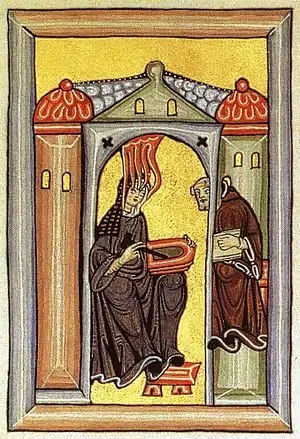Progressive revelation (Christianity)
Progressive revelation is the doctrine in Christianity that the sections of the Bible that were written later contain a fuller revelation of God than the earlier sections. For instance, the theologian Charles Hodge wrote:
"The progressive character of divine revelation is recognized in relation to all the great doctrines of the Bible... What at first is only obscurely intimated is gradually unfolded in subsequent parts of the sacred volume, until the truth is revealed in its fulness."[1]
God didn't tell people His entire plan all at once. They wouldn't be able to handle it. "Progressive revelation does not mean to say that the Old Testament is somehow less true than the New Testament. The progress was not from untruth to truth - it was from less information to more full information." ~Don Stewart :: What Is Progressive Revelation?
The ultimate revelation of God is understood to be found in Jesus Christ as revealed in the Gospels. For example, the New Testament is to be used to understand and interpret the Old Testament better. Likewise, all sections of the Bible are believed accurate in Evangelicalism.
See also
References
- Hodge, Charles (2003), Systematic Theology, 1, Peabody: Hendrickson, p. 446, ISBN 1-56563-459-4 (also available as Hodge, Gross, Edward N (ed.), Systematic Theology (abridged ed.), ISBN 0-87552-224-6)
External links
- Barry, Eldr, Progressive revelation: The unfolding of God's revelation (PDF).
- Progressive revelation, An introduction, Religious tolerance.
- What is Progressive Revelation
